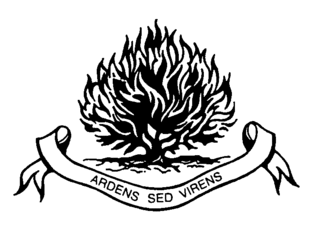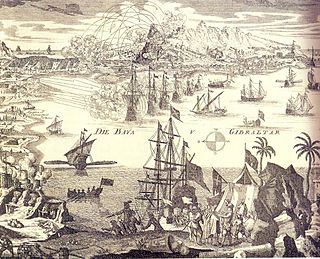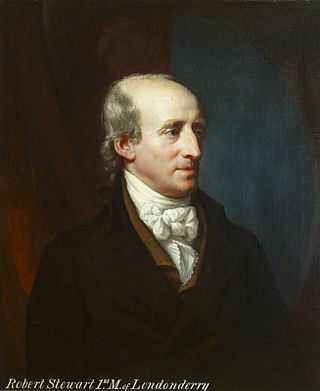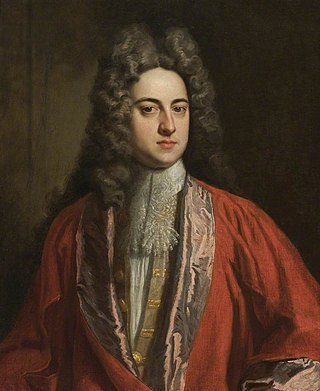| |||||
| Centuries: | |||||
|---|---|---|---|---|---|
| Decades: | |||||
| See also: | Other events of 1697 List of years in Ireland | ||||
Events from the year 1697 in Ireland.
| |||||
| Centuries: | |||||
|---|---|---|---|---|---|
| Decades: | |||||
| See also: | Other events of 1697 List of years in Ireland | ||||
Events from the year 1697 in Ireland.

Presbyterianism is a part of the Reformed tradition within Protestantism that broke from the Roman Catholic Church. Presbyterian churches derive their name from the presbyterian form of church government by representative assemblies of elders. Many Reformed churches are organised this way, but the word Presbyterian, when capitalized, is often applied to churches that trace their roots to the Church of Scotland or to English Dissenter groups that formed during the English Civil War.

1691 (MDCXCI) was a common year starting on Monday of the Gregorian calendar and a common year starting on Thursday of the Julian calendar, the 1691st year of the Common Era (CE) and Anno Domini (AD) designations, the 691st year of the 2nd millennium, the 91st year of the 17th century, and the 2nd year of the 1690s decade. As of the start of 1691, the Gregorian calendar was 10 days ahead of the Julian calendar, which remained in localized use until 1923.

1727 (MDCCXXVII) was a common year starting on Wednesday of the Gregorian calendar and a common year starting on Sunday of the Julian calendar, the 1727th year of the Common Era (CE) and Anno Domini (AD) designations, the 727th year of the 2nd millennium, the 27th year of the 18th century, and the 8th year of the 1720s decade. As of the start of 1727, the Gregorian calendar was 11 days ahead of the Julian calendar, which remained in localized use until 1923.

1689 (MDCLXXXIX) was a common year starting on Saturday of the Gregorian calendar and a common year starting on Tuesday of the Julian calendar, the 1689th year of the Common Era (CE) and Anno Domini (AD) designations, the 689th year of the 2nd millennium, the 89th year of the 17th century, and the 10th and last year of the 1680s decade. As of the start of 1689, the Gregorian calendar was 10 days ahead of the Julian calendar, which remained in localized use until 1923.

Robert Stewart, 1st Marquess of LondonderryPC (Ire) (1739–1821), was a County Down landowner, Irish Volunteer, and member of the parliament who, exceptionally for an Ulster Scot and Presbyterian, rose within the ranks of Ireland's "Anglican Ascendancy." His success was fuelled by wealth acquired through judicious marriages, and by the advancing political career of his son, Viscount Castlereagh. In 1798 he gained notoriety for refusing to intercede on behalf of James Porter, his local Presbyterian minister, executed outside the Stewart demesne as a rebel.
The order of precedence in the United Kingdom is the sequential hierarchy for Peers of the Realm, officers of state, senior members of the clergy, holders of the various Orders of Chivalry and other persons in the three legal jurisdictions within the United Kingdom:

Ballynahinch is a town in County Down, Northern Ireland. It had a population of 5,703 people in the 2011 Census.

John Bramhall, DD was an Archbishop of Armagh, and an Anglican theologian and apologist. He was a noted controversialist who doggedly defended the English Church from both Puritan and Roman Catholic accusations, as well as the materialism of Thomas Hobbes.
Scotch-IrishAmericans are American descendants of Ulster Protestants who emigrated from Ulster in northern Ireland to America during the 18th and 19th centuries, whose ancestors had originally migrated to Ireland mainly from the Scottish Lowlands and Northern England in the 17th century. In the 2017 American Community Survey, 5.39 million reported Scottish ancestry, an additional 3 million identified more specifically with Scotch-Irish ancestry, and many people who claim "American ancestry" may actually be of Scotch-Irish ancestry.

The moderator of the General Assembly is the chairperson of a General Assembly, the highest court of a Presbyterian or Reformed church. Kirk sessions and presbyteries may also style the chairperson as moderator. The Oxford Dictionary states that a Moderator may be a "Presbyterian minister presiding over an ecclesiastical body".

The Free Church of Scotland is an evangelical, Calvinist denomination in Scotland. It was historically part of the original Free Church of Scotland that remained outside the union with the United Presbyterian Church of Scotland in 1900. Now, it remains a distinct Presbyterian denomination in Scotland.

As of the 2011 census, Christianity was the largest religion in Scotland with the 53.8% of the Scottish population identifying as Christian when asked: "What religion, religious denomination or body do you belong to?", an 11.3% decline from 65.1% in 2001. The Church of Scotland, a Presbyterian denomination often known as The Kirk, is recognised in law as the national church of Scotland. It is not an established church and is independent of state control. However, it is the largest religious grouping in Scotland, with 32.4% of the population according to the 2011 census. The other major Christian church is the Catholic Church, the form of Christianity in Scotland prior to the Reformation, which accounts for 15.9% of the population and is especially important in West Central Scotland and parts of the Highlands. Scotland's third largest church is the Scottish Episcopal Church. There are also multiple smaller Presbyterian churches, all of which either broke away from the Church of Scotland or themselves separated from churches which previously did so. According to the 2019 Scottish Household survey, since 2009, there has been an increase in the proportion of adults reporting not belonging to a religion to 56%. The trend of declining religious belief coincided with a sharp decrease since 2009 in the proportion of people who report that they belong to the Church of Scotland, from 34% to 20% of adults. Furthermore 13% reported belonging to the Catholic Church.
Events from the year 1840 in Ireland.
Events from the year 1696 in Ireland.
Events from the 1100s in England.

Covenanters were members of a 17th-century Scottish religious and political movement, who supported a Presbyterian Church of Scotland and the primacy of its leaders in religious affairs. The name is derived from covenant, a biblical term for a bond or agreement with God.

Alexander Stewart (1699–1781) was an Irish landowner who grew rich by inheriting a fortune from Robert Cowan, a former governor of Bombay. His son Robert became the 1st Marquess of Londonderry.

The Presbyterian Church in Ireland is the largest Presbyterian denomination in the Republic of Ireland, and the largest Protestant denomination in Northern Ireland. Like most Christian churches in Ireland, it is organised on an all-island basis, in both Northern Ireland and the Republic of Ireland. The church has approximately 210,000 members.

John Livingstone was a Scottish minister. He was the son of William Livingstone, minister of Kilsyth, and afterwards of Lanark, said to be a descendant of the fifth Lord Livingston. His mother was Agnes, daughter of Alexander Livingston, portioner, Falkirk, brother of the Laird of Belstane.

John Semple was a seventeenth century minister in Ulster and Scotland. He began to preach after exhorting the people while leading the psalm-singing. His Presbyterian principles brought him into opposition to the policies of the civil authorities. He refused The Black Oath and was pursued by those sent from Dublin to apprehend non swearers. He relocated to Scotland and was named multiple times and threatened with severe punishment throughout his life including shortly before his death in his 75th year.